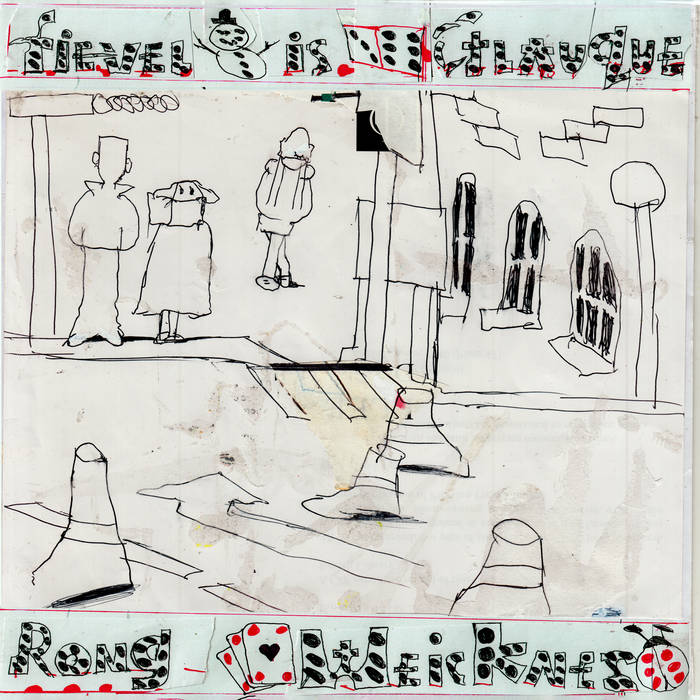Experimental recording procedures don’t always yield results on par with their concepts. But you don’t need to know all of the theory and process behind Fievel is Glauque’s album, Rong Weicknes, to hear that something very unique is afoot.
Their third album is, at face value, upbeat, energetic, and channels the AM radio gold of 60s and 70s easy listening pop classics. For close listeners, it’s a million mosaicked pieces meticulously arranged and begging to be examined.
The New York/Brussels project approached the recording process by taping the full band live and overlaying full takes of the songs, then winnowing the tracks down in the mix. The result is rich mini-orchestras that deviate from predictable pop formulations.
Flute plays a dominant role on Rong Weicknes, mostly setting a playful tone and occasionally bringing drama with its cascades of sound. On ‘As Above So Below’, it’s the flute that brings a quirky, romantic energy that could easily soundtrack an early 70s sitcom, while a glitchy keyboard balances the song in modernity and unsticks it from pastiche.
Fievel is Glauque have a strong sense of this balance, with keyboards and sitar adding unexpected counterpoints on songs like ‘Transparent’ and ‘Haut Contre Bas’ to the airiness of the album. What is most interesting about the sitar is that it is used for its vibrating delay and the dimension it adds to the songs rather than as a heavy-handed display of Eastern influence.
Even the most seemingly conventional track on the album – the nostalgic piano ballad ‘Toute Suite’ – isn’t as straightforward as a cursory listen implies. Peering from beneath an undercurrent of flute are subtle percussion and acoustic guitar, cut through by a live wire of faint, harsh electronic noise.
The songs on Rong Weicknes are also longer than the rapid-fire tracks of their previous two albums. Giving the songs space allows for tricks like the kaleidoscopic way instruments morph into each other. Without a frenetic pace to keep up with, singer Ma Clément also has more of a showcase for her vocals. Album opener ‘Hover’ shows the heft of her voice, while ‘Its So Easy’ suggests that Fievel’s songs could be carried by a chorus instead of improvisation.
Improvisation is still part of Fievel Is Glauque’s ethos – but in the same way that allowing the songs space to breathe shows growth in the band’s songwriting, so do more intentional improvisational breaks. The abrupt segue of ‘I’m Scanning For Things I Can’t See’ or the rapidly devolving ‘My Oubliette’ feel like releases of pent up energy. For all the refinement of the editing process, they have managed to retain an instinctual character.


